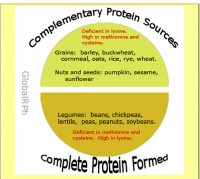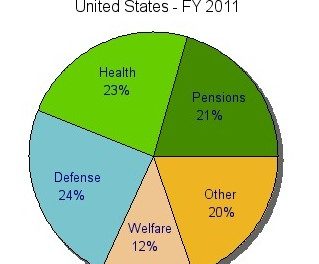By Luz Mejia
Today, I am sharing easy food combinations for vegetarians and vegans. The challenge is to ensure you are getting enough complete protein in your diet every day. The following are tips that ensure you are obtaining most if not all of those essential amino acids.
There are four different categories:
Vegetables: Broccoli, cabbage, carrots, kale, spinach, and zucchini, just to mention a few. I recommend these in organic form.
Grains: Barley germinated brown rice, oats, quinoa, and barley. In general if you can obtain organic sprouted whole grain, you will have the best nutrition ever in those grains.
Nuts and Seeds: Almonds, Brazil nuts, cashews, chia seeds, hemp seeds, pepitas, sesame seeds, and walnuts are among the many nuts and seeds in this category. Make sure they are raw and organic.
Legumes: Beans, lentils, chickpeas, peas, chickpeas, and many more choices in this group. Organic and sprouted will be a better choice.
Now that you know the four basic categories, let’s go through what essential amino acids each of the categories are missing. Diagrams 1 and 2 are helpful in understanding this
Let’s start with veggies, because did you ever hear of a vegetarian who didn’t eat veggies? Vegetables are quite often low in the amino acids methionine and isoleucine. These are important for heart health, muscle recovery and blood sugar regulation. So if you tried to survive on Veggies alone you probably wouldn’t be doing all that well.
 You could try a diet of grains, which seem to make up the majority of most people’s diet, but don’t necessarily include them in their raw form, unfortunately. Grains are low in Lysine, threonine and tryptophan. These three control bone development, hormone production, sleep and regulate moods. So if you lived off grains alone you’d be a tired, cranky, hormonal mess probably with osteoporosis
You could try a diet of grains, which seem to make up the majority of most people’s diet, but don’t necessarily include them in their raw form, unfortunately. Grains are low in Lysine, threonine and tryptophan. These three control bone development, hormone production, sleep and regulate moods. So if you lived off grains alone you’d be a tired, cranky, hormonal mess probably with osteoporosis
On to nuts and seeds, which are deficient in lysine and isoleucine. These have been previously mentioned for their involvement in bone development, muscle recovery and blood sugar regulation.
Likewise with legumes which are low in methionine and tryptophan for heart health, sleep and mood regulation. So we can’t live off any one of these categories alone. However, if we combine the correct foods and have a good variety, we won’t be missing out at all!
If you want to ensure you have a complete amount of protein with every meal, consider combining the following:
What if you have sprouted organic quinoa? What do we combine it with so we obtain all the amino acids needed to have a complete protein? And what if you are also a vegan (dairy free)?
Looking at the diagram it makes a lot of sense that we combine grains with their complementary food so all the amino acids are together. Therefore, sprouted organic quinoa or another grain such as germinated organic brown rice combine with any legume, such as beans, lentils, chickpeas, just to mention a few.
Needless to say, I buy all my food in organic version and if I find it sprouted it will be a better choice. And because I always do my balancing with EFAa (essential fatty acids, omega 3, 6, and 9) then I do not get any spikes in my blood sugar readings. And what does this mean? That by applying this technique, not only do I get all the amino acids needed for complete protein, but it is a must in my diet.
For people who do not know, I help to reverse metabolic syndrome and type 2 diabetes. Therefore, combine grains with legumes and nuts or seeds as these are better choices.
What about veggies? In order to make them complete proteins what do you combine them with? Meals with vegetables, most of which are low in methionine and isoleucine, should be combined to include grains, legumes and nuts and/or seeds so there is a complete protein combination.
As you have seen, it is not difficult to include whole grains, legumes, seeds and/or nuts and vegetables in our daily meals. This way we ensure that non-animal protein can be our very good friend.
For all readers of BIZ INDIA Online News: I provide complimentary nutritional counseling to the first 20 callers. My specialty in my masters program in Nutrition was metabolic syndrome (resistance to insulin and other conditions related to type 2 diabetes). I am looking forward to enhance your health.
Call Lucero (Luz) Mejia with your questions and comments at 609 844-0775. Or you can Email her at lucero@feelrejuvenated.com. She has a Master of Science degree in Nutrition, is a Certified Nutrition Counselor, a Certified Fitness Professional, a Certified Muscle Activation Techniques Specialist, a Certified Ohashiatsu Practitioner, and a Certified Zumba Instructor. Visit her website: www.FeelRejuvenated.com.








